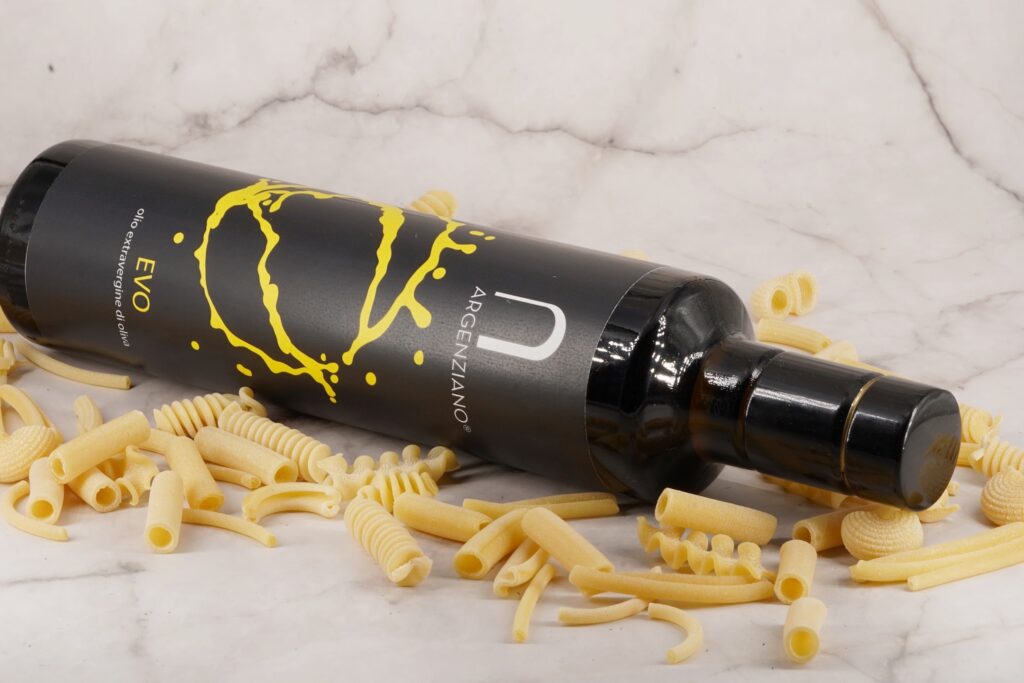
Extra virgin olive oil: use in the kitchen
Although the benefits of extra virgin olive oil are maximum when used cold, even its use in cooking can improve the characteristics of the food being treated. This is due to the properties of the antioxidants contained in extra virgin olive oil, which are partially transferred to the food during cooking, protecting it and limiting harmful alterations due to high temperatures.
- Marinade: marinating meat in extra virgin olive oil before roasting or cooking it, limits the production of potentially carcinogenic substances, which are typically generated during cooking with barbeque and grill.
- Frying: in frying, in which food is immersed to cook between 160 ° and 180 °, Extra Virgin does not reach its “smoke point”, that is the threshold beyond which the greatest harmful degradations are created. In addition, foods fried with extra virgin olive oil absorb part of the antioxidants.
- Soffritto : sautéed or browned, determines an exchange of antioxidants which in some cases seems to improve the nutritional properties of the cooked product compared to raw ingredients.
Another fundamental aspect in using extra virgin olive oil in the kitchen lies in combining the oil with the right organoleptic characteristics with the food that is being prepared.
For example, an extra virgin of high intensity can be combined with foods with strong flavors, while one of medium-low intensity can be used with foods with lighter flavors, so as not to cover the aromas.
